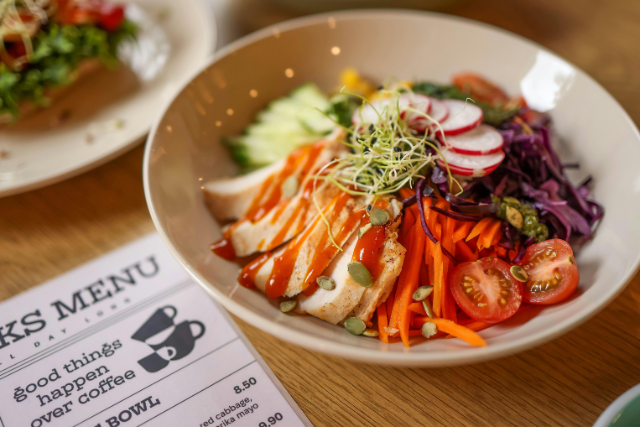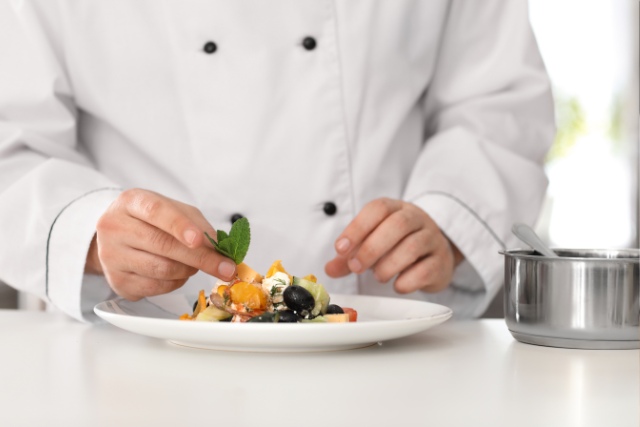
Culinary training has evolved. Today’s professional kitchens demand more than mastery of flavor or plating. Chefs are expected to think critically about nutrition, sourcing, and the broader impact of their work.
At CCA Manila, students learn to connect these priorities through hands-on training, industry experience, and structured coursework that reflects the realities of the modern kitchen.
In this article, we’ll look at how contemporary chef training brings together technical skill, nutritional awareness, and sustainable thinking into one cohesive program.
Develops Precise Cooking Techniques That Support Healthier Outcomes
Strong technique is the foundation of professional cooking. Future chefs learn how to manage temperature, timing, knife control, and ingredient preparation with precision. These skills create meals that are consistent, balanced, and nutritionally sound. A chef trained in core methods can reduce reliance on processed ingredients, excessive oils, or sugar-heavy sauces.
Instead of masking ingredients, they bring out the best in them. Grilling, poaching, steaming, and roasting are used not for trend but for function. Each method is taught in context, showing how technical control allows for healthier food production without sacrificing quality or appeal.
Explains How Cooking Affects Nutrient Retention
Heat, moisture, and time all influence the nutritional profile of food. Aspiring cooks are taught how different techniques alter macronutrients and micronutrients, from vitamin degradation to fiber breakdown. A simple shift in method, such as sautéing instead of boiling, can preserve more nutrients in leafy greens or root vegetables.
Nutritional value is not left to chance but shaped through clear technical choices reinforced by classroom theory and kitchen practice.
Promotes Ingredient Planning That Aligns With Seasonal and Regional Availability
Ingredient sourcing is not just a purchasing task but reflects a kitchen’s values, efficiency, and environmental footprint. Students are trained to plan meals using fresh ingredients that are in season and available from local producers.
Planning menus around growing seasons teaches adaptability and supports better food system practices. Instead of over-relying on imported items that strain supply chains, students build skills in adjusting recipes based on what’s available and appropriate for the region.
Introduces Systems That Limit Food Waste in Daily Prep
Lessons cover portioning, trimming, and storage with precision. Every step in the prep phase connects directly to long-term waste reduction. Vegetable scraps become the base for stocks, while trimmed proteins are repurposed into soups, sauces, or other components. Yield is measured carefully to determine how much usable product comes from each ingredient, and that understanding informs planning and purchasing decisions.
Guides Menu Development with Health and Operational Balance in Mind
A well-composed menu must work for customers, the kitchen crew, and the bottom line.
Every menu item is reviewed for its pr ep load, cost impact, and dietary content. Instead of offering dishes that look good on paper but are difficult to deliver at scale, students learn to balance protein, vegetables, grains, and sauces with real-time capacity and pricing. Nutritional structure is integrated into that process, making it part of daily planning rather than a last-minute add-on.
ep load, cost impact, and dietary content. Instead of offering dishes that look good on paper but are difficult to deliver at scale, students learn to balance protein, vegetables, grains, and sauces with real-time capacity and pricing. Nutritional structure is integrated into that process, making it part of daily planning rather than a last-minute add-on.
Builds Fluency in Plant-Forward Cooking
Plant-forward does not mean removing meat entirely. It means understanding how to center meals around grains, legumes, vegetables, and other non-meat ingredients. Students learn how to make these components carry the plate by developing flavor through layering, seasoning, and proper cooking methods.
Grains are handled with the same care as pasta. This shift in approach allows chefs to meet a broader range of dietary expectations while working with ingredients that are often more sustainable and cost-effective.
Encourages Full Use of Proteins and Underused Cuts
Professional kitchens often waste valuable product by focusing only on prime cuts. Chef courses address this by training students to use full proteins and underutilized items. Instead of relying solely on chicken breast or tenderloin, students practice with shoulder, liver, tail, or whole fish. They’re taught to tenderize, marinate, and slow-cook with intent.
At the same time, students learn to source responsibly, choosing items that align with sustainability benchmarks or certified sourcing programs. Working with the full ingredient deepens culinary skill while reinforcing responsible kitchen practice.
Best Course to Take: Professional Chef

A focused and accessible program for individuals ready to take their first serious step into the culinary world. The Professional Chef course offers a simplified yet structured approach to learning kitchen fundamentals, blending essential theory with real kitchen practice. Designed for aspiring chefs, career shifters, and food enthusiasts, the course provides a strong starting point for those exploring courses to become a chef in a professional setting.
The course introduces the structure of professional kitchens and the expectations of working in high-paced culinary environments. Instruction is built around clear systems supporting skill development and responsible kitchen habits.
What sets this program apart from other chef courses is its integration of values that matter in today’s industry. Sustainability is not taught as a side topic. From day one, students are encouraged to make choices that reduce waste, use ingredients thoughtfully, and support more environmentally aware kitchen practices. This focus connects technique with real-world awareness, helping students build habits that serve them beyond the classroom.
As part of CCA Manila’s broader offerings under the Chef’s Plus program, the Professional Chef course is ideal for those looking to explore a chef course Philippines learners can access without committing to a full diploma just yet.
Build Better Kitchens with CCA Manila!
Cooking well means working with structure, understanding ingredients, and making choices supporting health and sustainability. Without training, those elements stay disconnected.
A chef course that combines nutrition, sustainability, and technique builds real skill. At CCA Manila, students learn how to cook purposefully and run kitchens that work smarter.
Ready to take that step? Apply now and start with training that supports clear thinking and responsible choices.
